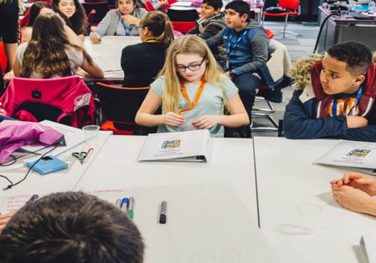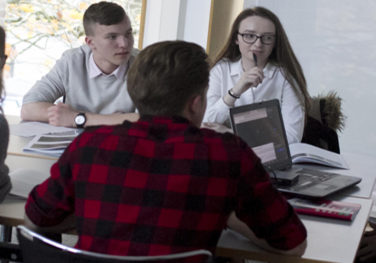Centre For Social Justice, Breakthrough Britain II
Breaking the cycle of disadvantage
How can education help young people break intergenerational cycles of poverty? This was the central theme of research we funded in 2014, carried out by independent think tank the Centre for Social Justice.
Why focus on educational failure?
Children who leave school with few or no qualifications are less likely to find employment or to progress at work. This can set in motion a cycle of disadvantage that continues for generations. But, we know that educational underachievement can be reversed. During the London Challenge, for example, London moved from being one of the poorest performing regions to one of the highest at Key Stage 4. Progress that has been made in London schools now needs to be extended to the rest of the country.
- In 2013, 40% of children left school without five grade A*-C GCSEs. Children from families onlow incomes and children in care did particularly poorly.
- We funded the Breakthrough Britain II report, by the Centre for Social Justice, on how to tackle educational failure.
- The report recommends policy solutions and recommendations that can alleviate educational inequality and improve the life chances of disadvantaged young people.

About the research
The Centre For Social Justice’s research aimed to:
- establish the nature and extent of educational failure in Britain
- identifyreasons why successive governments have not adequately tackled educational failure
- propose policy solutions and recommendations that can give disadvantaged children an opportunity to realise their potential
The report drew on established research as well as the views and experiences of academic experts, policy makers, community groups, teachers, parents and young people. The research identified five key policy priorities to address educational failure: 1. Improve readiness for schoolby raising the quality of early years provision – to ease children’s transition from nursery to reception classes, and improve their literacy, numeracy, communication and social skills. 2. Support disadvantaged pupilsby extending access to the Pupil Premium for families affected by long-term unemployment, family breakdown, addiction and mental health problems, as well as young carers and looked after children. 3. Improve schools, teaching and leadershipby enhancing school-to-school support, improve standards in primary schools and improve the quality of teaching and leadership. 4. Spread successby supporting effective Academy chains to expand into deprived areas and for a National Teacher Service Scheme to encourage good teachers to work in schools in deprived areas. 5. Improve further education and transition to workby increasing the number of university technical colleges and high-quality apprenticeships targeted at disadvantaged young people; and improving links between further education colleges and employers. For more findings and recommendations, download the Breakthrough Britain II research report
More Success Stories

Education Endowment Foundation – Supporting students with SEND

Research Schools Network

